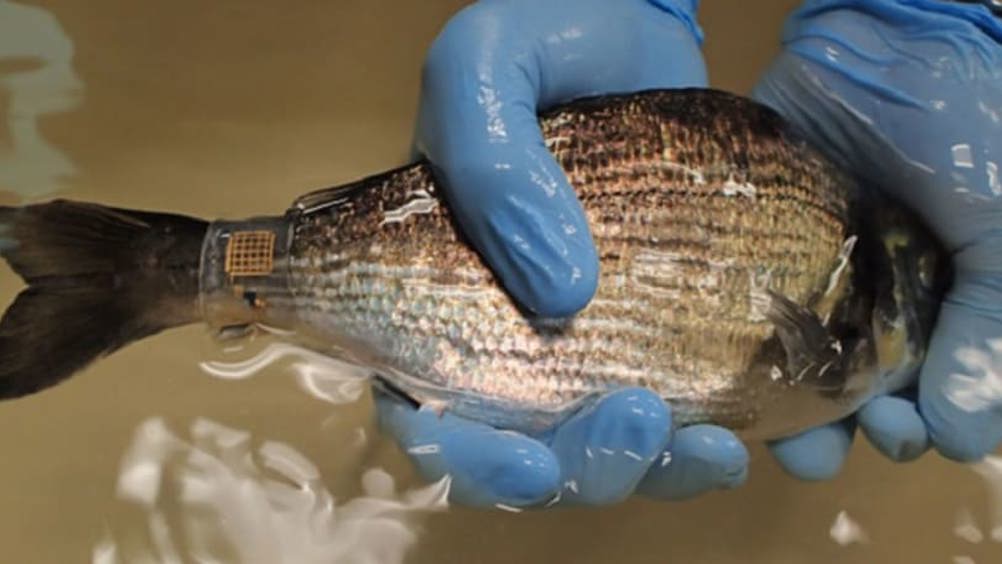Marine Skin sensor goes to new depths
Marine creatures and the environment they inhabit could be studied in greater depth thanks to Marine Skin, a new electronic tag developed at KAUST in Saudi Arabia.

Marine Skin is said to be a thin, flexible, lightweight polymer-based material with integrated electronics which can track an animal’s movement and diving behaviour and the health of the surrounding marine environment. Early versions of the sensor were glued onto a blue swimming crab, but the latest version is attached to an animal using a non-invasive bracelet or jacket. This can, when necessary, avoid the need for any glues that might harm an animal’s skin. Their results are published in Small.
“The system can now operate down to a depth of 2km, which has never been achieved before by anyone,” said PhD student Sohail Shaikh of the KAUST (King Abdullah University of Science and Technology) team.
According to KAUST, the sensitivity of the monitoring electronics has also been enhanced by up to 15 times. The data collected reveals a tagged animal’s depth and the temperature and salinity of the surrounding water. Further development is planned to incorporate additional environmental sensing capabilities, such as measuring oxygen and carbon dioxide levels and precise geolocation tracking.
Register now to continue reading
Thanks for visiting The Engineer. You’ve now reached your monthly limit of news stories. Register for free to unlock unlimited access to all of our news coverage, as well as premium content including opinion, in-depth features and special reports.
Benefits of registering
-
In-depth insights and coverage of key emerging trends
-
Unrestricted access to special reports throughout the year
-
Daily technology news delivered straight to your inbox










UK Enters ‘Golden Age of Nuclear’
The delay (nearly 8 years) in getting approval for the Rolls-Royce SMR is most worrying. Signifies a torpid and expensive system that is quite onerous...